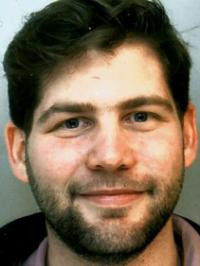I have been participating in the project, The Paradox of Realism, since the beginning of 2016. Although I am most passionate about Political Theory and its ideas about the manifold nature and inherent attributes of politics, I have hold of a never diminishing interest about US politics and the unique place of religion in the US society. My curiosity about Liberalism critic ideas heightened during my MA degree thesis research on Counter-Enlightenment sentiments and their influence on US political philosophy. The unique research topic of the Project about “moralist and realist ideas” and its study of recently neglected aspects of politics like “political deeds” and “sources of legitimacy” seemed to offer a view and approach very close to my personal orientation. I couldn’t resist but to apply!
I am working in the Analytical Module of the Project under the leadership and assistance of Attila Gyulai, where we are aiming to unfold the so-called “Realist Turn” in Hungarian Political Science and to elucidate its roots, character, and consequences on today’s Hungarian Political Theory, therefore revealing a peculiarity of 21st century Hungarian Political Science that has never been done before. We embarked on our research at three different levels of study: we identify and analyze the many distinct theories of “politics”, the main or salient topics of Hungarian Political Science in the last three decades, and revealing the special vocabulary of the separate “schools of theories”. By conducting this in-depth and sound analysis, we hope to canvas a proper picture about the “Realist Turn”. My task in this Module is to concentrate on the changing interpretation of the term “politics” in Hungarian academic textbooks and monographs. To grasp the various terms applied to “politics” and to successfully categorize them in the spirit of finding the traces and qualities of Hungarian Realist ideas, I focus on a wider range of concepts and context: I examine their elaborating viewpoints on Political Science, history, democracy and their applied terms like “sovereignty”, “power”, “rule”, “order” or “state”.
Though very challenging and detailed, I consider this job extremely exciting for many reasons, but mainly because it provides a chance of obtaining a very profound knowledge about the development of the ideas about “politics” not only in Hungary, but in the international scientific discourse as well, thus familiarizing me with a very wide scale of theories and scientific debates. I believe this is an unmatched possibility for every student of Political Sciences who aspires to pursue a PhD in Political Theory!

